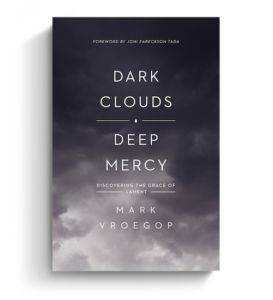Popular atheists tell us we’ve outgrown God, much like we outgrow our beliefs in Santa Claus. Recent research suggests this might be true as adherence to Christianity is declining, and the number of “nones” is growing.
At the same time, Christmas has maybe never been so popular. Consider that nearly 100 Christmas movies will be released this year alone. Black Friday and Cyber Monday revenues are higher than in years past. Since Thanksgiving, many radio stations have played songs 24 hours a day assuring us that Santa Claus is coming to town. Commercially speaking, Christmas’s star is rising (pun intended).
How is spiritual adherence to Christianity waning when the popularity of its holiday is waxing?
Bandages on Open Wounds
Perhaps because we desperately need hope and positivity in an increasingly cynical and negative world. Frosty the Snowman and Buddy the Elf offer both attributes to us without asking us to make spiritual commitments. Let’s face it—in our divided world, we could use a little saccharine cheer to sweeten up the bitter drink we’ve been imbibing lately.
Christianity once provided hope for many in the story of Jesus’s birth. But skeptical attacks on Christianity have eroded confidence in this history. The uptick in television programs and books questioning the validity of the Bible is just as inevitable this season as the spate of Christmas movies. Holiday parties include conversations about the supposed pagan roots of Christmas and the alleged dearth of evidence for the historical Jesus.
Few people, it seems, know the real evidence corroborating the story of Jesus’s birth, his life, his death and resurrection, and how such evidence warrants our belief—or at least compels our consideration. As a result, we’re left with no grounding for enduring hope—only Rudolph’s triumph over bullying, George Bailey’s realization that his life really matters, and Clark Griswold realizing that Christmas is about family. As good as these messages are, they are mere bandages on our open wounds.
Self-Medication
Eventually, commercial Christmas wears off. This salve does not heal. And we’re left with nothing to help us face the doldrums of January and February. For many, life has more Januarys and Februarys than it does Decembers. The blues of winter can set in as the days are shorter and colder, and the next festive holiday isn’t for months.
When commercial Christmas wears off, many of us have nothing with which to face the doldrums of January and February.
Perhaps Christmas can be on the rise, yet Christianity on the decline, because for too long sincere questions have gone unanswered. Is it reasonable to believe that someone could be born of a virgin? Did God really guide astrologers from the East with a star to visit a child who would be king of the universe?
The answers lie in tying the beginning to the end.
Christmas becomes profound when we couple it to the other Christian holiday—Easter. The heart of the Christian message is that Jesus rose from the dead on Easter to prove that his death on the cross paid for our sins. Through his resurrection, he shows himself to be the Savior. The Bible insists that if Jesus didn’t rise from the dead, the Christian faith is not worth believing (1 Cor. 15:14).
Christmas is meaningless without Easter.
Outgrowing Cynicism
I was once a staunch critic who demanded evidence for Christianity. After nine years of researching, I found the evidence so compelling that I became a Christian. I didn’t outgrow my faith in God. I outgrew my cynicism about Christianity. The evidence worked strangely in reverse. The evidence that Jesus rose from the dead implied that his being born of a virgin was mere child’s play. Christmas makes Easter possible, while Easter makes Christmas meaningful.
Christmas makes Easter possible, while Easter makes Christmas meaningful.
I remain hopeful that we’ll see spiritual Christmas afresh. Amid the cacophony of holiday movies, A Charlie Brown Christmas stands out for its enduring popularity and its profound message. Charlie Brown becomes so disillusioned with Christmas’s commerciality that he can no longer contain himself. “Can anyone tell me the true meaning of Christmas?!” he shouts to his friends.
His buddy Linus takes up the challenge by reciting Luke 2:8–14. Those verses recount the Savior’s birth and how it signals the reconciliation between God and humanity. Indeed, the program ends with the kids’ hope-filled voices belting out “Hark, the Herald Angels Sing”: “Peace on earth and mercy mild; God and sinners reconciled.”
So what’s a skeptic to do with Christmas? Perhaps one could ask Charlie Brown’s question and find an answer to outgrow the increasingly superficial season and the accompanying cynicism. Perhaps all of us can grow into a season of enduring joy and peace.
In a season of sorrow? This FREE eBook will guide you in biblical lament
 Lament is how we bring our sorrow to God—but it is a neglected dimension of the Christian life for many Christians today. We need to recover the practice of honest spiritual struggle that gives us permission to vocalize our pain and wrestle with our sorrow.
Lament is how we bring our sorrow to God—but it is a neglected dimension of the Christian life for many Christians today. We need to recover the practice of honest spiritual struggle that gives us permission to vocalize our pain and wrestle with our sorrow.
In Dark Clouds, Deep Mercy, pastor and TGC Council member Mark Vroegop explores how the Bible—through the psalms of lament and the book of Lamentations—gives voice to our pain. He invites readers to grieve, struggle, and tap into the rich reservoir of grace and mercy God offers in the darkest moments of our lives.
Click on the link below to get instant access to your FREE Dark Clouds, Deep Mercy eBook now!





































